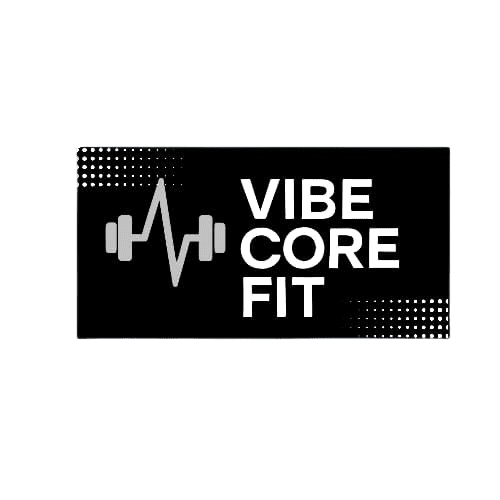

Introduction: Why Beginners Need a Solid Start
It can be overwhelming to start your fitness journey. With so much advice on how to live a happy, successful life floating around the internet, some better than others but much of it dodgy in its own right, it’s easy for beginners to get overwhelmed. Confused as a beginner, you may ask:
- Which are the right exercises to begin with?
- How often should I exercise each week?
- What about supplements, do I need to take them immediately?
- How do I avoid injuries?
That’s where this beginner-friendly guide is going to come in: To answer those questions and help you curate a safe, effective, and FUN workout routine for yourself. Science-based ideas, real-world results and easy step-by-step tutorials will help you get started and stick with it.
What Makes a Beginner Workout Different?
Lower Volume and Intensity
Advanced routines are not necessary for starters. Lower volume and intensity allow you to advance without risk because your muscles, joints, and nervous system are not yet suited to big loads.
Focus on Form Over Weight
Learning correct form is crucial before chasing numbers. Long-term setbacks and injuries might result from poor technique.
Faster Progress in the Beginning
In the first six to twelve months, beginners see “newbie gains,” or quick increases in strength and muscular mass. You are encouraged to continue your program as a result.

Benefits of Exercise for Beginners
Physical Health
-
Improves heart health
-
Builds muscle strength
-
Increases bone density
-
Boosts metabolism
Mental Health
-
Reduces stress and anxiety
-
Enhances mood (endorphin release)
-
Improves sleep quality
Lifestyle Benefits
-
Increases confidence
-
Supports weight management
-
Builds discipline and routine
The Foundations of a Beginner Workout
Principle #1 – Consistency Over Perfection
It’s better to work out 3 days consistently than to go hard for a week and quit.
Principle #2 – Progression
Gradually increase weights, reps, or sets to keep improving.
Principle #3 – Balanced Training
Include strength, cardio, and flexibility to create a complete fitness plan.
Step-by-Step Beginner Workout Guide
Warm-Up (5–10 Minutes)
Warming up prepares your body and reduces injury risk.
-
Light cardio (jogging, cycling, or jump rope)
-
Dynamic stretches (arm circles, leg swings)
Beginner-Friendly Strength Training
Strength training builds muscle, boosts metabolism, and strengthens bones.
Full-Body Beginner Workout (3 Days a Week)
Do 3 sets of 10–12 reps for each exercise:
-
Squats (legs and glutes)
-
Push-ups (chest, shoulders, triceps)
-
Dumbbell Rows (back and biceps)
-
Glute Bridges (hips and glutes)
-
Plank (core stability)
Cardio Workouts for Beginners
Cardio improves heart health and endurance.
Options for Beginners
Brisk walking (20–30 minutes daily)
Cycling (outdoor or stationary bike)
Swimming (low impact, great for joints)
Jump rope (effective, quick sessions)
Recommended Frequency
2–3 times per week for 20–40 minutes.
Flexibility and Mobility
Flexibility improves recovery and prevents stiffness.
Simple Stretches
Hamstring stretch
Shoulder stretch
Cat-cow stretch
Seated forward fold
4-Week Beginner Workout Plan
Weekly Breakdown
Week 1–2
Day 1: Full-body strength training
Day 2: Cardio (30 min walk/jog)
Day 3: Rest or light yoga
Day 4: Full-body strength training
Day 5: Cardio (cycling/swimming)
Day 6: Full-body strength training
Day 7: Rest
Week 3–4
Increase reps to 12–15
Add light weights/dumbbells
Introduce interval cardio (jog-walk intervals)

Nutrition Basics for Beginners
Key Macronutrients
Protein
Builds and repairs muscles
Sources: eggs, chicken, fish, beans, tofu
Carbohydrates
Primary energy source
Sources: rice, oats, sweet potatoes, fruits
Fats
Supports hormones and energy
Sources: nuts, olive oil, avocados
Hydration
Drink at least 2–3 liters of water daily.
Beginner-Friendly Meal Plan (Sample Day)
Breakfast: Oatmeal with fruit and eggs
Lunch: Grilled chicken with rice and vegetables
Snack: Greek yogurt with nuts
Dinner: Fish with sweet potatoes and salad
Common Beginner Mistakes to Avoid
Skipping Warm-Ups and Cool-Downs
Leads to injuries and poor recovery.
Lifting Too Heavy Too Soon
Start with manageable weights.
Inconsistent Training
Results come with patience and regular effort.
Ignoring Nutrition
Exercise without proper nutrition = slower progress.
Comparing to Others
Your journey is unique—focus on your growth.
Tracking Progress as a Beginner
Methods to Track
Take progress photos every 2 weeks.
Log weights, sets, and reps in a workout journal.
Monitor body measurements (waist, chest, arms).
Track energy levels and sleep quality.
Celebrate Small Wins
Doing more push-ups than last week.
Running an extra 5 minutes.
Choosing water over soda.
Supplements for Beginners (Optional)
Protein Powder
Helps meet protein needs if diet falls short.
Creatine
Supports strength and endurance.
Multivitamins
Fills in dietary gaps.
(Note: Supplements are optional—focus on food first.)
Beginner FAQs
How many days a week should beginners work out?
3–4 days per week is ideal.
Should beginners do cardio or weights first?
Weights first, then cardio (if combining in one session).
How long before I see results?
4–6 weeks for noticeable strength, 8–12 weeks for visible changes.
Do I need a personal trainer?
Not necessary, but helpful for learning form.
Conclusion: Start Small, Stay Consistent
Beginning your workout journey doesn’t need to be complicated. Focus on:
Simple full-body exercises
Balanced nutrition
Consistency and patience
Every small step builds momentum. What matters most is that you start today and keep showing up for yourself.
Your beginner phase sets the foundation for a stronger, healthier future. Don’t rush—enjoy the journey.
